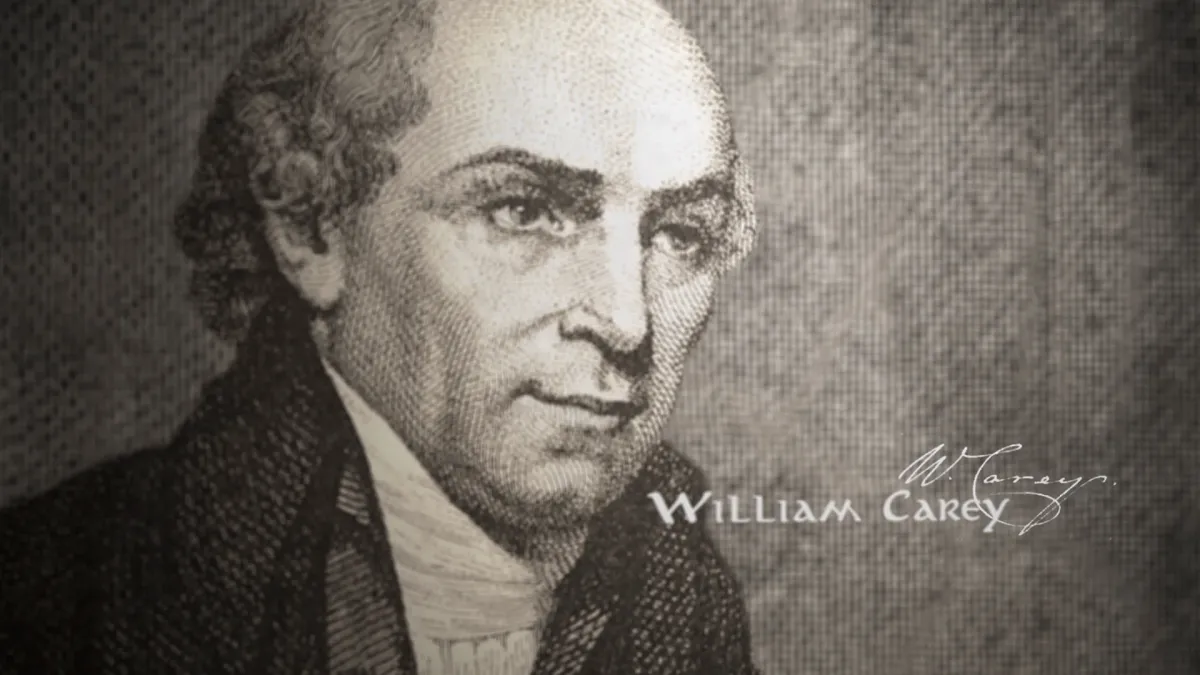William Carey: An End to Human Sacrifices
“We must obey God, not men."

Key words
- Mission: An organization that works to increase what is known about its religion
The Methodist mission is situated in one of the poorest parts of the city.
- Minister: A religious leader in certain Christian churches
He's a minister at the local Baptist church.
- Conviction: a strong opinion or belief
It's my personal conviction that all rapists should be locked away for life.
- Pave the way: Something that makes another thing possible
Their research will pave the way for further improvements in healthcare.
- Marginalize: someone treated as if they are not important
Social unrest may occur among marginalized groups within the community.
Read the article to find the answers
- What was William Carey's education?
- Did the church support the idea of overseas missions?
- Who banned missionary work?
- What is he the father of?
Early life
Born in England in 1761, William Carey grew up in a poor family with only a basic education. Nevertheless, he developed a love of reading and a passion for sharing the Gospel. He eventually became a Baptist minister, preaching in small churches near his home.
During his time as a minister, Carey began to feel responsible for all the people who lived in countries that he believed had not heard the Gospel. He believed that all Christians had an obligation to spread the Gospel to people of all nations. At the time, the church did not support the idea of overseas missions, but Carey remained firm in his convictions. In 1792, he preached a famous sermon that marked the beginning of Carey's missionary work and inspired the wider missionary movement.
Missionary work in India
In 1793, Carey, his wife, and several other missionaries set sail for India, where they faced many challenges, including language barriers, cultural differences, and opposition from the East India Company. The East India Company banned missionary work in its territories because it believed that the spread of Christianity would disrupt its business. Believing that he must obey God rather than men, Carey continued his work without acknowledging the authority of the East India Company. He soon became known for both his language skills and his commitment to improving people's lives.
One of his most significant contributions to Christian missions was his work in translating the Bible into local languages. He learned that the Gospel was more easily understood when it was in the local language. He learned several local languages and translated the Bible into Bengali, Oriya, and other Indian languages, paving the way for future Bible translations in other parts of the world.
Carey also had a deep commitment to improving people's lives. He believed that missionary work should include both teaching the Gospel and providing for the basic needs of people. He established schools and fought for the rights of women and marginalized groups.
During his time in India, Carey witnessed a number of practices that he thought were criminal. One of these was Sati, the practice of burning a Hindu widow on her husband's funeral pyre. Carey worked tirelessly to raise awareness of the issue and campaign for its abolition. He published a series of articles and pamphlets condemning the practice and worked with other missionaries and Indian reformers to lobby the British government to take action. In 1829, the British government outlawed the custom.
Legacy
William Carey helped to ban Sati. He established schools for marginalized children, teaching them reading, writing, accounting and Christianity. He founded Serampore University, the first degree-awarding university in India, and translated Indian literature into English, helping Europeans to better understand and appreciate Indian culture.
He is known as the father of modern missions. His work to spread the Gospel and improve people's lives resulted in the founding of the Baptist Missionary Society.
Discussion questions
- Do you have any questions about any of the vocabulary or grammar in this article?
- Do you know the Bible passage quoted at the top of this article?
- Has something like Sati ever existed in your country?
- Do you know about the missionaries who went to your country?

Book a Lesson
Improve your English language communication skills by practicing with a qualified and experienced native speaker.





